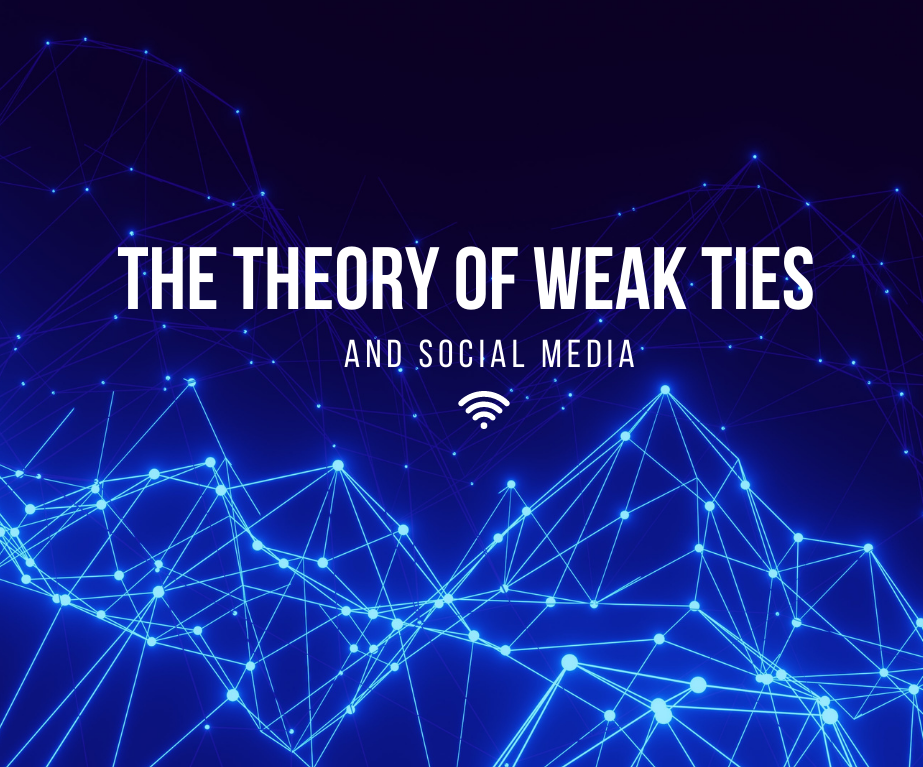In 1973, Johns Hopkins sociologist Mark Granovetter published “The Strength of Weak Ties,” a famous study in which he surveyed hundreds of job finders in the United States. Granovetter considers networking as a critical link between economists’ studies of labor mobility and more focused studies of a people’s motivation to find a job. People are more prone to adopt new ideas from strangers than from close friends, according to Granovetter’s research. The same is true during a job search.
Mark Granovetter developed the strength-of-weak-ties hypothesis (SWT), and the findings show that people are more likely to receive a job through one of their weak ties – acquaintances, or a stranger with a common cultural background – rather than their strong ties – their father, mother, and significant others.
What’s a Weak Tie?
It’s someone you know casually or perhaps simply through a friend network. Someone you used to work with years ago, an old school friend, or a former neighbor. A weak tie can be anyone you don’t know well.
These are bonds formed by people who know each other but not particularly well. In real life, these are the people you interact with once a month and presumably do not see very often. You may not have much in common with your weak ties, and the majority of your weak ties will be strangers to one another.
Why Do Weak Ties Matter?
- We tend to be close friends with people who are demographically, culturally, and professionally similar to us. For example, if we are searching for a job, we know of any positions that our close friends know.
- We’re more likely to express what we need to a weak tie. When we are communicating with weak ties, we are forced to clarify precisely what we want and why.
- Without weak ties, People would be deprived of knowledge relevant to the global system and they miss out on trends that did not originate in their own community.
- Without weak ties, there would not be connections between different communities.
- Weak ties can also exponentially expand your network.
According to Mark Granovetter’s survey, over 17 percent found about the job through a strong tie… People, however, were significantly more likely to benefit from weak ties. Almost 28% found about the job through a weak tie. Strong ties build bonds, but weak ties work like bridges, allowing for more efficient access to new information.
How Can We Establish Weak Ties?
We now have easy access to weak ties and their information thanks to the Internet. We can promote ourselves on social media by posting content and ideas relating to our area of expertise; someone in our social network may recognize us as a good candidate for a position at their institution.
It’s necessary to make sure that our online social network includes people who can influence employment choices at schools and institutions, not simply close friends.
Tanya Menon, an organizational psychologist, explains that expanding our weak ties can expand our chances in ways we often underestimate. Menon offers an activity in which you “identify the most irritating person you see… and engage with them to push yourself to see what you don’t want to see, connect with who you don’t want to connect with, and expand your social world.”
When Menon teaches, she does not let her students sit at the same seat week after week. She moves them around and encourages them to collaborate with different students, causing further unexpected bumps in the network.
Tanya Menon is fascinated that in a time when we can instantaneously connect with nearly the whole world, we often instead filter our relationships even more narrowly. As such, we often get stuck in dead ends, missing out on new people, ideas and opportunities.
Watch her talk to understand how innocuous daily habits cause people to remain in their social comfort zone and learn about ways that we can be more intentional about navigating the social world.
Fortunately, modern social networks allow us to strengthen these weak ties by meeting new people, doing new activities, and broadening our perspectives.
This is how people can easily expand their exposure to global events by using platforms like Twitter, LinkedIn, and Facebook.

Do you think that these weak ties lead to new opportunities? Well, you’ll only know if you try.

